
In Genoa, an Ensemble for Every Phase of Life
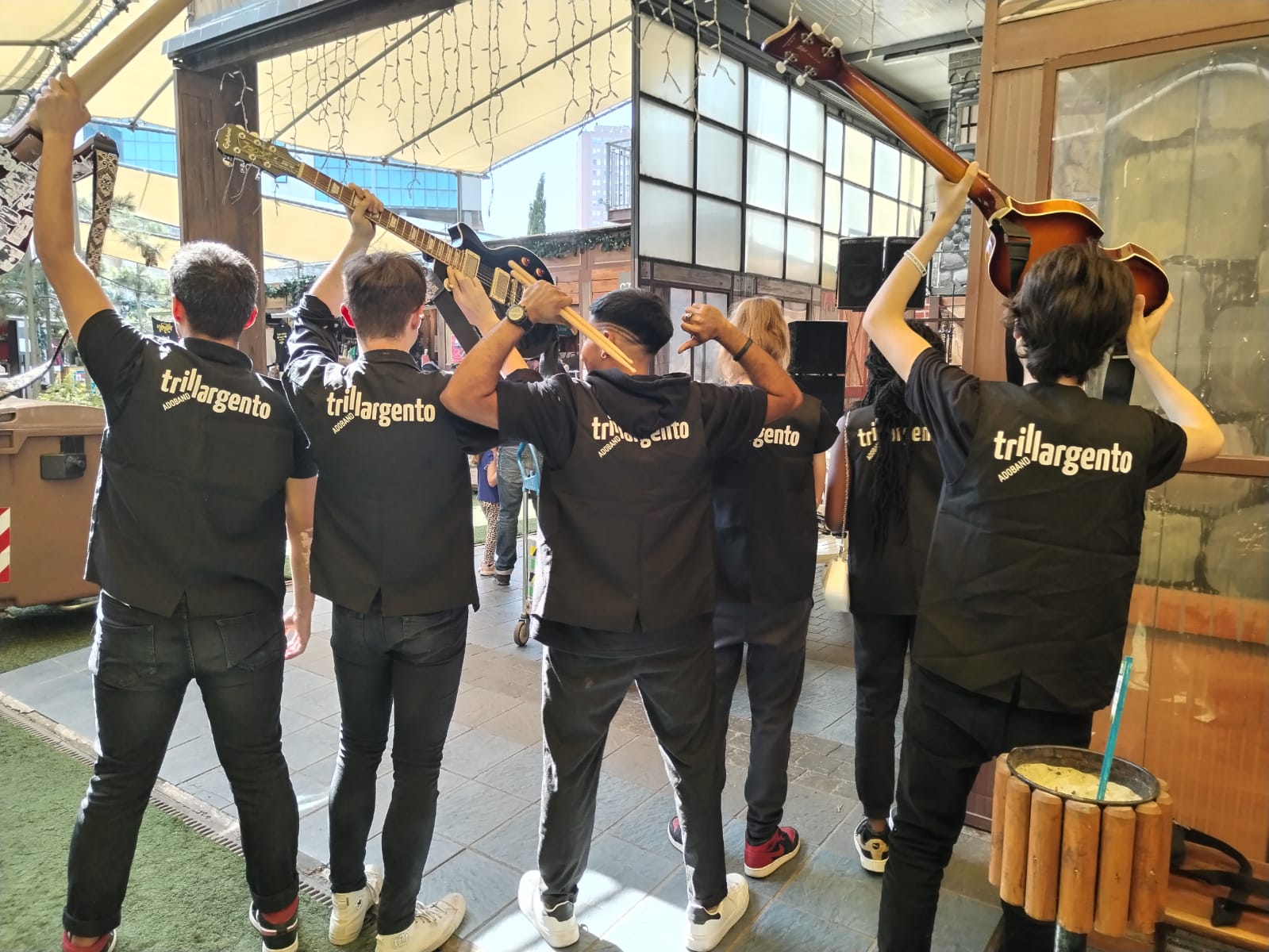
Youth Rock Band.
Trillargento is a community-based music program founded in Genoa, Italy, that explores how ensemble music practice can foster social inclusion, personal growth, and cultural participation. Over the years, we’ve grown into a multi-layered ecosystem of ensembles, each responding to a specific need but together forming a single educational journey that integrates musical development with social and emotional learning.
Early Childhood Pathways
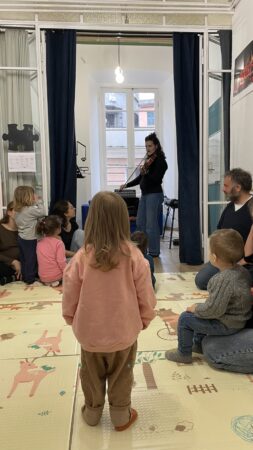
We recently introduced programs for early childhood, recognizing both the developmental benefits of music and the importance of engaging families from the very beginning. Our Orchestra Coccole (“cuddles”) sessions, designed for babies and toddlers with a parent present, focus on simple interactions—listening, movement, playful exploration, and discovering instruments with teachers—that foster bonding, communication, and emotional growth.
Designing this program was a challenge, beginning with identifying the Trillargento teachers who were best suited to work with such young learners. We sought out experts in methodologies closest to our vision (Gordon, Suzuki, Kodály, Colourstrings) and organized training sessions for staff. Together with our teachers, we designed a pathway tailored to the needs of young children and their families: two in-depth sessions per month for families to choose between, designed to work no matter how attendance turned out each month. It was unusual for us to not plan a fixed, year-long program, but we took the leap so families could enjoy some flexibility.
We are now building an “educating community” around each child. Parents became partners in their children’s first encounters with music, creating an environment of trust and shared discovery, and families stay connected as children grow into older ensembles.
The Parent Orchestra
This connection only strengthens over time. The Parent Orchestra, or Orchestra Grandi, invites adults—often parents—to take up an instrument, many for the first time. Parents and children follow separate learning paths but sometimes perform together at concerts, creating powerful intergenerational connections.
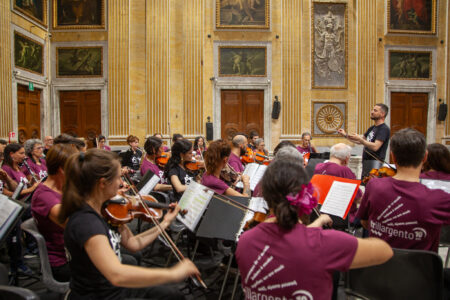
At first, it was difficult to find a teaching formula that offers both high-quality music paths and relaxing breaks from daily life. Adults have little time to practice at home, so we had to ensure that lessons became meaningful study moments. After several trials—and inspiration from our adult choir—we found a balance that works.
Each Monday, we gather in our rehearsal room and follow whichever format best suits our needs: sectionals, instrument groups, full orchestra, or a combination. (During early “study phases,” for instance, we split into instrument groups for an hour before coming together to put everything into practice.) Unlike with younger groups, we’ve noticed that fixed rituals are less effective for adult learners—what really maintains enthusiasm is a varied rehearsal structure that surprises and engages them in new ways.
The Orchestra Grandi elides the usual boundary between “students” and “families,” making parents active participants instead of sideline observers. Children see their parents facing similar challenges, fostering empathy and shared responsibility, while parents gain insight into their children’s discipline and perseverance. This has lasting benefits, with many participants going on to volunteer at rehearsals and events.
The Rock Band
Adolescence brings new needs. The Youth Rock Band was created at the request of educators working with at-risk teenagers in a disadvantaged neighborhood. These young people would not have joined a classical orchestra, but they were eager to engage with music in ways that reflected their own world.

The band has become a laboratory for songwriting, arranging, and experimenting with amplification and rhythm—very different from our orchestral rehearsals, yet equally rooted in the practice of making music together. What matters is not the format but the experience of listening, responding, and creating collectively.
For some, the Rock Band is their first sustained encounter with an instrument; for others, it offers a way to connect personal musical tastes, cultural references, and identities with a group. From the beginning, we wanted to avoid the traditional model of music schools: students practicing alone all year and meeting only for a final performance. Instead, we built a real band, rehearsing weekly together and working in small groups. After trial and error, this formula has fostered a strong sense of community.
This year, we’ll broaden the Rock Band’s repertoire, exploring genres such as funk, progressive rock, and musical theatre—styles that call for instruments beyond the current lineup. To start, we’ll bring in trumpet and saxophone, later adding violin and flute, so that orchestral players can experience the power of an expanded band. Our long-term goal is to create a symphonic-rock project that unites the orchestra and the band.
Learning Together
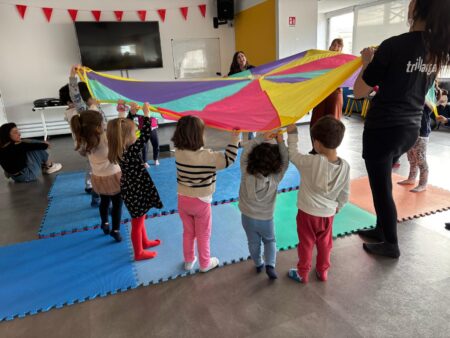
All this is possible when the teacher community is alive and united; just as strong roots nourish a tree, we must nurture our communities. We continue to experiment, to make mistakes, and to ask questions—but sharing our experiences, even imperfect ones, is essential to our global movement. We hope that colleagues worldwide find something useful in our story, just as we continue to learn from theirs.
Ensemble music can adapt to different stages of life. Whether in early childhood sessions, a parent ensemble, a rock band, a symphony orchestra, or even among teachers, the format matters less than the collective experience of creating side by side. When children and adults play together, when parents become students, and when teenagers shape their own band, music becomes a rehearsal space for empathy, responsibility, and belonging.
Related Content
All Regions, Community Building, Editorials, Gather Together, Opinion, Perspectives & Collective Action, Professional Development, Program Design, Student Voice & Leadership, Teaching & Learning, the ensemble
EDITORIAL
Musical Benchmarks Build Equity
Patrick Scafidi
All Regions, Collaborations, Community Building, Events/Performances, Gather Together, News and Resources, North America, Professional Development
New ESUSA Opportunities & Events
Patrick Scafidi
Collaborations, Community Building, Europe, Events/Performances, Funding & Support, Gather Together, Middle East, News and Resources, Professional Development
Funding Opportunity for Arab Artists Based in Europe
Patrick Scafidi
Collaborations, Community Building, Featured, Gather Together, New Orleans, North America, Perspectives & Collective Action, Student Voice & Leadership
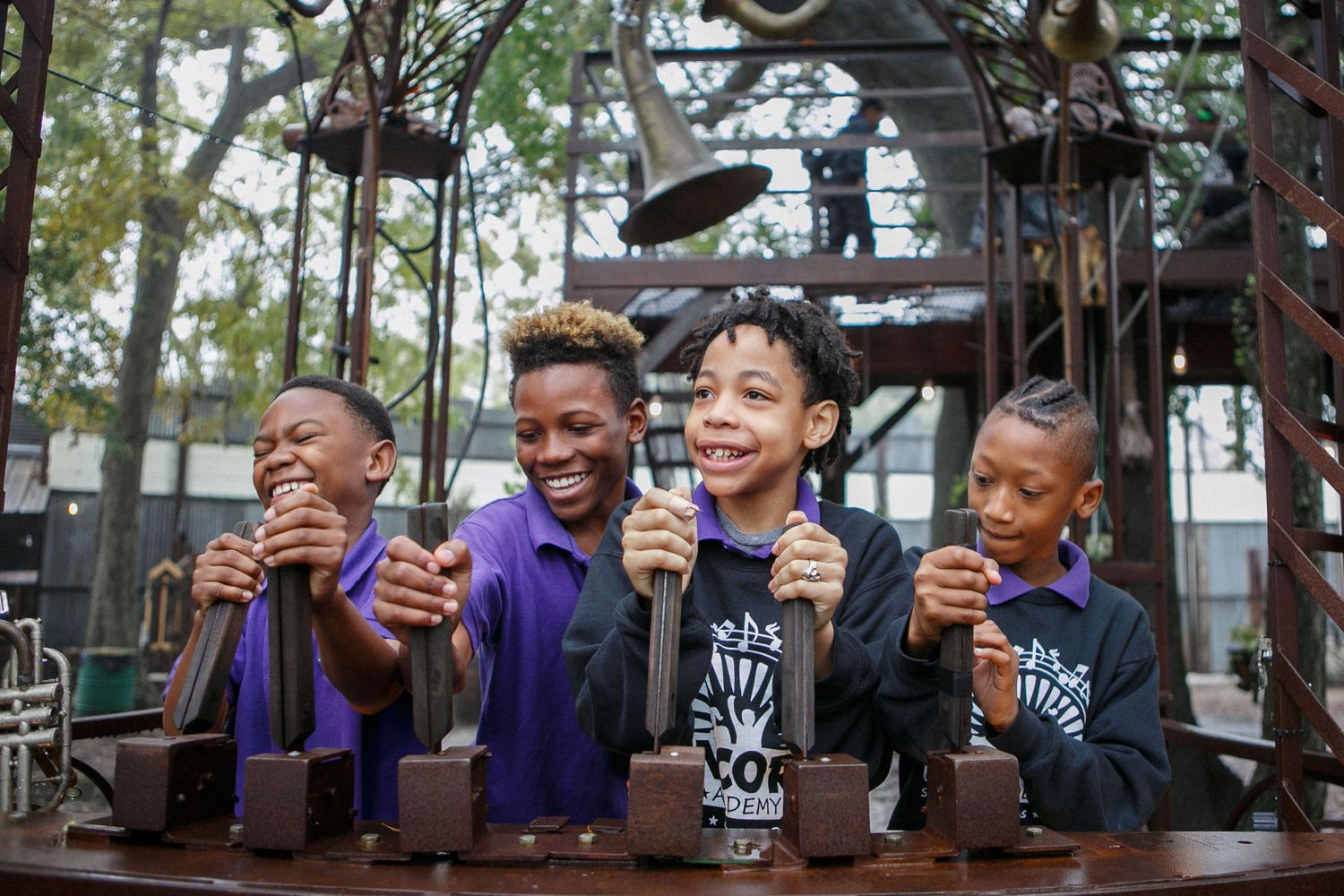
The Importance of Free Play in Music Education
Patrick Scafidi


